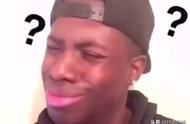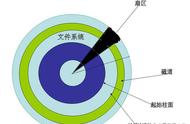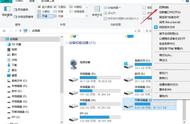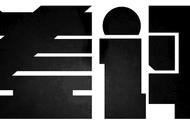【期末复习】人教版七年级英语下册Unit7-Unit12知识要点归纳
Unit 7
1.bad---good(反义词)
2.cold---hot(反义词)
3.warm---cool(反义词)
4.Canada---Canadian(形容词/名词)
5.Europe---European(形容词)
6.sit---sitting(现在分词)
7.country---countries(复数)
8.Russian---Russians(复数)---Russia(国家名词)
9.visit---visitor (名词)---visiting(现在分词)
10.rain---rains(第三人称单数)---raining(现在分词)
Unit 8
1..climb—climbing(现在分词)
2.across—cross(动词)
3.behind—in front of(反义短语)
4.north—northern(形容词)
5.cross—crossing(名词)
6.right—left(反义词)
7.easy—easily(副词)
8.clean—dirty(反义词)
9.quick—quickly(副词)
10.monkey—monkeys(复数)
Unit 9
1.high---height(名词)
2.curly---straight(反义词)
3.later---late(形容词)
4.thin(瘦的)---heavy/fat(反义词)
5.glass---glasses(复数)
6.act---actor/actress(名词)
7.real---really(副词)
8.art---artist(名词)
9.mouth---mouths(复数)
10.person---persons(复数)---personal(形容词)
Unit 10
1.large---big(同义词)
2.potato---potatoes(复数)
3.noodle---noodles(复数)
4.lucky---luck(名词)
5.ask---answer(对应词)
6.different---differently(副词)
7.candy---candies(复数)
8.dumpling---dumplings(复数)
9.onion---onions(复数)
10..idea---ideas(复数)
Unit 11
1.paint---painter/painting(名词)
2.love---lovely(形容词)
3.expensive---cheap(反义词)
4.slow---fast(反义词)
5.interest---interested/interesting(形容词)
6..lucky---luckily(副词)
7.excite---excited/exciting(形容词)
8.know---knew(过去式)
9.teach---taught(过去式)
10.farm---farmer/farming(名词)
Unit 12
1.up---down(反义词)
2.sheep---sheep(复数)
3.butterfly---butterflies(复数)
4.mouse---mice(复数)
5.baby---babies(复数)
6.visit---visitor(名词)
7.start---begin(同义词)
8..use---useful(形容词)
9.two---second(序数词)
10.scare---scared(形容词)
Unit7
1.
on (a) vacation在度假
go on (a) vacation去度假
go for a vacation准备度假
2.
(be) just right for 名词;代词;动-ing
适合(某事)做某事
just right for walking
正适合散步
3.
take a message for sb
.给某人捎个口信
leave a message to sb
给某人留言
4.
learn a lot = learn much 学得多
know much = know a lot 知道得多
practice a lot = practice much 练习得多
exercise a lot = exercise much练习得多
5.
have a great time doing sth.做某事很开心;过得愉快
=have fun (in) doing sth.
6.
How’s it/ everything going?
最近怎么样?事情进展得怎么样?
(询问某人近况如何)
--Great!/Not bad!/Terrible?
太好了/还不错/糟糕极了!
Everything is going well.
一切进展顺利。
7.
sound是连系动词,意为“听起来”;sound like意为“听起来像” 如:
It sounds interesting.
听起来很有趣。
It sounds like a good idea.
听起来像是一个好主意。
8.
No problem!
(1)没问题(表示乐于相助或事情容易做)
(2)没什么(用于回答对方的道歉或感谢)
9.
visit 参观、访问
visitor 参观者
visit sb访问某人
visit 地点:访问某地
10.
study hard
努力学习
work hard at …
在某方面努力
Unit8
1.
turn left/right 向左/右转
(1)turn left/right at the... turning/crossing,意为“在第……个拐角处/路口左/右转”。如:
Turn right at the first crossing.在第一个路口右转。
(2)turn left/right on/at+地点,意为“在某地向左/右转”。如:
Turn left at Center Park.在中心公园向左转。
2.
on the left/right 在左/右边
on the left/right of
在……左/右边
on one’s left/right
在某人的左/右边
3.
across from 在……的对面;在……对过。如:
The supermarket is across from the school. 超市在学校的对面。
4.pay用法
1)v. 付费,花费 pay…for… 人 pay 钱 for sth.
如:
I paid 60 yuan for a used bike.
我花费60元买了一辆旧自行车。
2)n. 工资,报酬。如:
I must get my pay.
我必须得到我的报酬。
5.
around用法
1) 介词 在……周围 around = round 如:
around the school在学校周围
2) 副词 adv. 在周围 如:
walk around 四处走动
3)副词adv. 大约 around = about。如:
about 200 trees = around 200 trees大约200棵树
6.
turn 用法
1)turning n. 拐弯处,拐角处。如:
the first turning第一个拐弯处
2)v. 转向。 如:
turn back返回
turn back home , 返回家
turn around , 转身
turn right , 向右转
3) n. 次序,顺序 如:
It’s your turn. 该你了。
take one’s turn 按顺序轮流
7.
across from. 在…….对面
next to. 在……旁边. 靠近
between…and…在……和……中间
behind在……后面
8.
in front of
在…(外部的)前面
→behind
在…后面
in the front of
在…(内部的)前面
9.
Thank you very much .的答语
(1)You are welcome!
(2)Not at all!
(3)That's all right!
(4)No problem.
10.
be far from
=be far away from
离……远
11. take, pay, spend, cost花费用法
1)物 take 时间。如:
It took me two hours to finish my homework.
完成作业花了我两个小时。
2)物 cost 钱。如:
The coat cost me 200 yuan.
这件上衣花了我200元。
3)人 pay (…) for…。如:
She paid 80yuan for the bike.
她花了80元买这辆自行车。
4)人 spend…doing…
I spent a summer reading the book.
我花了一个夏天读这本书。
5) 人 spend… in doing…
We spent 2 days in taking the bed there.
我们花了两天时间把这张床搬到那。
6) 人 spend…on sth.
We spent 2years on the job.
我们花了二年时间在这个工作上。
12.
free
(1)空闲的
free time (反义词)busy
(2)自由的
as free as a fish
(3)免费的
The best things in life are free.
生活中最好的东西是免费的。
13.
look like ;
看起来像
look for:
寻找
look at:
看
14 watch
(1)watch是感官动词,watch sb./sth.do sth.意为“观看某人或某物做了某事”,watch后面的动词不定式省略to,表示观看动作的全过程或者这个动作经常发生。如:
I often watch him play basketball on the playground.
我经常看着他在操场上打篮球。
(2)watch sb./sth.doing sth.意为“观看某人或某物正在做某事”,表示观看时动作正在进行。如:
The old man was watching his grandsons playing on the floor.
那位老人正注视着孙子们在地板上玩。
15......so.……这样。如:
Do you think so?
你认为是这样吗?
I hope so. 我希望是这样。
I think so. 我认为是这样。
I don’t think so. 我不认为这样。
Unit9
1.
job和work的用法
job和work两个词都作“工作”讲, job是可数名词,强调职业,可以说a job;work是不可数名词,指抽象的工作。如:
①I can find a part time job.我能找到一份兼职工作。
②I'm busy today, for I have a lot of work to do.今天我很忙,因为我有很多工作要做。
2.
tall与 high的用法
high 和 tall 都有“高”的意思。tall 指身材的高度,一般用于人和动物,它的反义词是short。high 一般表示物体的高度,它的反义词是low。如:
Tom is tall. He can climb the high mountain.汤姆是高个子,他能爬那座高山。
3.
. glass的用法
⑴glass作“玻璃”讲时,为不可数名词。
Glass breaks easily. 玻璃易碎。
⑵glass作“玻璃杯”讲时,为可数名词。
Please have a glass of water.
⑶glass作“眼镜”讲时,只用复数形式。
a pair of glasses 一副眼镜
4.
talk的用法
talk to sb.与某人谈话(以一方为主);
talk with sb.与某人谈论(双方互谈);
talk with sb.about sth.与某人谈论某事。
5.
little的用法
1)小的(形容人、动物或植物的年龄小,可爱)如:
a little girl 一个小女孩
a little tree一棵小树
a little dog一只小狗
2) 没有,几乎没有 (是否定词,后加不可数名词)。如:
There is little water in the glass.
玻璃杯里几乎没有水。
6.
another:又一、再一
another two hours
=two more hours
另外两个小时
7.
may的用法
1) 表示许可, 意思是可以
如:May I go home?
我可以回家吗?
Yes, you may./Yes, you can.
是的,你可以。
No, you mustn’t.
不,你禁止回家。
2) 表示可能性, 意思是可能
如:
Come on, or you may be late.
快点,否则你可能会迟到。
8. way 的用法
way 方式;路线;方法;方面。如:
in a good way 用一种好的方法
the way to sp. 去某地的路
the way to do 做……方法
on the way 在路上,在途中
9. be doing 的用法
be doing 表示将来。如:
1)I’m flying to Beijing.
我将要飞往北京。
2)I’m coming.
我来了。
10.
make的用法
make 使,让
make sb./sth. adj. 使某人或某物……。如:
make me happy使我高兴
make sb. do 让某人做某事= let sb. do。如:
make me go home 让我回家
11.
be good at doing/sth
擅长做某事/某事
be good with:
善于应付.......... 对...有办法
12.
look like 与be like的区别
look like 看起来像 (常用来询问某人的外貌)
用来询问某人的身材或长相,即外貌,其结构为“What + do/does +主语+look like?”
He looks like her mother.
be like 像„..一样,指品德、相貌等像(指人的个性特征)如果询问人的性格、人品时,多用What be(am/is/are)„like?
—What’s he like?
他是个什么样的人呢?
—He’s friendly and kind. 他友好善良。
13.
the same as
和......一样
be different from
和........不同的
14.
each of the/these/those 名词复数
做主语时. 谓语用单数形式。
Each of these books is interesting.
每本书都很有趣。
15. a little bit , a bit&a little
作状语表示“有点,一点”时,三者可以通用。但a little bit 的程度比后两者稍弱一些。例如:
Today is a little bit/ a bit / a little hot. 今天有点热。
a bit 加上of可以和a little 一样修饰不可数名词,例如:
He only has a little / a bit of money. 他只有一点钱。
Unit10
1.
would like sth. 想要某物
I would like a cup of tea. = I’d like a cup of tea.
我想要一杯茶。
2.
would like to do
I would like to go home.
我想要回家。
3.
Would you like …? 你想要一些……吗?
Yes, please./ —No, thanks.
Would you like another one?
你想再要一个吗?
---Yes, please. / No, thanks.
好的。/不了,谢谢。
4.Would you like to do… ? 你愿意去做……吗?
---Would you like to go to Beijing with me?
你想和我去北京吗?
---I’d love./like to. But I’m too busy.
我想去,但是我太忙了。
5.
would like sb to do sth “想要某人做某事”
I would like Tom to do my homework everyday.
我想让汤姆每天都做作业。
6.
the number of 名词复数表示“……的数量”;后面接可数名词复数。做主语时. 主语是number而不是of后面的名词复数. 因此谓语动词要用单数;
The number of students is 800.学生人数是800人。
a number of 名词复数 表示“许多”. 相当于many. 后面接可数名词复数. 做主语时. 主语不是number而是of后面的名词复数. 因此谓语动词要用复数。
A number of students are playing football.
一些学生正在踢足球。
7.
what kind of….? 哪一种
a kind of 一种
kinds of… 多种多样的
many kinds of… 许多种类的
different kinds of不同种类的
all kinds of各种各样的
8.
What size( n)would you like?
你喜欢什么尺寸(型号)的?
large/ medium/ small(修饰型号或者尺寸)
大号的/中号的/ 小号的
9.
全世界
around the world
= round the world
=(all)over the world
= across the world
= in the world
10. size
1) Size 40, Size L 40码 L 码
2) 形容尺码,大用large, big . 小用 small。如:
I want a big size.
我想要大号的。
3) What size would you like?
你想要多大号的?
Unit11
1.
go+v. ing 通常用来表示去进行某项活动。如:
go shopping 去购物
go swimming 去游泳
2.
too many 可数名词复数 太多的……
too many students
太多的学生
3.
learn...about... 学到……关于……
learn...from... 向……学习……
4.
worry v. n. 担心;担忧。worried adj. 担心的
worry about = be worried about 担心……
get worried 担心
5.
feed chickens 喂小鸡
feed on 以...为生:以...为食
feed sth.to sb./sth把某物喂给某人/某物
6.
pick v. 采;摘;拾
1)pick apples 摘苹果
2)pick up my book拾起我的书
3)pick me up 把我捎上
7.
trip通常指短途旅行、旅游或外出
go on/make/take a trip出去旅行
on a trip在旅行期间
8
ask sb a question/questions 问某人问题;
ask sb about sth 询问某人有关...的情况;
ask sb to do sth 要求某人做某事;
9.
teach sb to do sth 教某人做某事;
teach sb sth 教某人某事=teach sth to sb
teach oneself 自学;
teach sb.how to do sth. 教某人如何做某事
10.
watch 表示专注地看
watch TV 看电视
watch a soccer game 看一场足球赛
11.
be popular with sb. = get popular with sb. 受某人欢迎
12.
too much 不可数名词 太多的...;
too much water 太多水
13.
much too 形容词/副词 实在太...
Today is much too hot.
今天实在太热了。
14.
somewhere
在某处、到某处(常用于肯定句中);
I will go somewhere warm.
我要去暖和的地方。
15.anywhere
某个地方、任何地方(常用于肯定句和疑问句中);
I can’t see my dog anywhere.
我在哪儿也没看到我的狗。
16.
something
“某事. 某物”. 常用于肯定句中,还用于句型”Would you like something to do?”中. 表示希望得到对方肯定的回答;
I have something to tell you.
我有事要告诉你。
17.
anything
“任何事物”. 用于肯定句. 疑问句和否定句中;
I didn’t know anything about the movie.
我对那部电影一无所知。
18.
nothing“什么也没有”;=not ...anything
I knew nothing about the movie.
我对那部电影一无所知。
19
everything
“一切事物”. 可用于任何句式。
She says everything is going smoothly.
她说一切进展顺利。
20
exciting
令人兴奋的(修饰物);
excited
感到兴奋的(修饰人);
Unit12
1. How interesting!多有趣啊!
此句是感叹句。感叹句结构:How+形容词/副词(+主语+谓语)!/What+形容词+名词(+主语+谓语)!如:
How interesting (the trip is)!=What an interesting trip (it is)!这次的旅行多有趣啊!
2.
keep sb. / sth. 形容词 / 副词 / 介词短语 使……保持……
例句:
Please make a fire to keep us warm.请生火以取暖。
keep sb/sth doing
让某人一直做某事
例句:
The teacher keeps Tom standing out of the door.
老师一直让汤姆站在门外面。
3.
so 形容词 / 副词 that 句子 如此……以至于……
●so 形容词 / 副词 that 句子
例句:
He is so young that he can’t go to school.
他如此小以至于还不能去上学。
4.
●see sb. doing sth.
看见某人正在做某事;
(强调动作正在进行)
●see sb do sth
看见某人做了某事;
(强调动作已经完成或经常做)
5.
surprise
1) 使惊讶;使吃惊 v. 如:
The news surprised me.
这个消息使我惊讶。
2)n. 吃惊;惊讶。in surprise 惊讶的(地) 如:
I was in surprise. 我是惊讶的。
3)surprised 修饰人 be surprised at… 对……吃惊。如:
I was surprised.
我很惊讶。
4)surprising adj. 令人惊讶的。如:
The news is surprising.
这个消息令人惊讶。
6.
●too...to do太...而不能....
●enough to do足够...去做...
例句:
He is too young to go to school.
他太小而不能去上学。
He is not old enough to go to school.
他不够大不能去上学。
7.
lesson n.课程、教训
learn a lesson 得到一个教训;
teach sb a lesson 给某人一个教训;
take a lesson from 从..中吸取教训;
8.
move
1) 移动。如:
move around四处移动
2) move to sp. 搬家到某地。如:
I moved to Beijing last mouth.
我上个月搬家到了北京。
3) 使感动 如:
What he did moved me.
他所做的事情感动了我。
4) moved (修饰人)感动的adj. moving(修饰物)。如:
9.stay
1) 停留。如:
stay for ten days 停留十天
2) 待。如:
stay at home待在家里
3) 保持。如:
stay adj 保持怎么样
stay healthy保持健康
4) stay up = stay up late 熬夜
stay up(late) until… 熬夜到……
10.
scared adj.惊慌的、吓坏的;
scare v.使惊慌;
scary凶恶的. 可怕的
be scared of 对.....感到害怕;害怕......
be scared to do sth 害怕做某事
例句:
This is a scary story.
这是个可怕的故事。
I am scared of the story.
我害怕这个故事。
11.
other
1)other可作形容词或代词。adj. “别的. 其他的”
例句:
Do you have any other questions?
你还有其他的问题吗?
Ask some other people.
问问别人吧。
12.
the other 代词. (两者中的)“另一个”
(other为代词)
例句:
He has two pens, one is black, the other is blue.
他有两支钢笔。 一支是黑色的。 另一支是蓝色的。
13.
one……the other……一个……. 另一个……
例句:
He has two sons, one is a doctor, the other is a worker.
他有两个儿子. 一个是医生. 另一个是工人。
14.
others代词. 是other的复数形式. 泛指“其余的(人或物)” (指其余的部分)
例句:
There are 48 students in my class. 20 are boys, others are girls.
我们班有48个学生。其中20个是男生,其余的是女生。
15.
some……others……一些……. (另)一些……
例句:
There are lots of students on the playground, some are playing basketball, others are dancing.
操场上有许多学生。有些人在打篮球. 有些人在跳舞。
16.
the others特指某一范围内的“其他的(人或物)”(指其余的全部)
例句:
There are lots of students on the playground, some are playing basketball, the others are dancing.
操场上有许多学生. 有些人在打篮球. 其余的都在跳舞。
17.another = an other.
可作形容词或代词. 泛指同类事物中的三者或三者以上的“另一个”. 只能代替或修饰单数可数名词。
例句:
We're going to have another teacher.=We're going to have an other teacher.
我们又要有一个老师。
Unit7
1. not bad 不错
2. at the park 在公园
3. take a message for… 为……捎个口信
4. have a good time/have a great time/have fun/enjoy oneself 过得愉快
5. call sb. back 给某人回电话
6. no problem 没问题
7. right now 现在
8. talk on the phone 通过电话交谈
9. some of ......当中的一些
10. by the pool 在游泳池边
11. drink orange juice 喝橙汁
12. study hard 努力学习
13. on a vacation 在度假
14. in the mountains 在山里
15. call sb. 给某人打电话
16. write to sb. 给某人写信
Unit8
1. post office 邮局
2. police station 警察局
3. pay phone 付费电话
4. Bridge Street 桥街
5. Center Street 中心大街
6. Long Street 长街
7. near here 附近
8. across from 在……对面
9. next to 挨着,靠近
10. between…and… 在……和……之间
11. in front of 在……前面
12. excuse me 劳驾
13. far from 离……远
14. go along… 沿着……走
15. turn right/left 向右/左转
16. on the(或one’s) right/left 在(某人的)右边/左边
17. in my neighborhood 在我的街区
18. look like 看起来像
19. in life 一生中
20. be free 免费的/有空的
Unit9
1. short hair 短发
2. long hair 长发
3. curly hair 卷发
4. straight hair 直发
5. (be) of medium height 中等个子
6. (be) of medium build 中等身材
7. go to the movies 去看电影
8. a little 有点儿
9. look like 看起来像
10. a big nose 大鼻子
11. a small mouth 小嘴巴
12. a round face 圆脸
13. black hair 黑发
14. big eyes 大眼睛
15. a long face 长脸
16. the same way 同样的方式
17. in the end 最后
18. blonde hair 金黄色的头发
Unit 10
1. would like 想要
2. take one’s order 点菜
3. beef soup 牛肉汤
4. one bowl of… 一碗……
5. what size 什么尺寸
6. mapo tofu with rice 麻婆豆腐盖饭
7. what kind 什么种类
8. small / medium / large bowl 小/ 中/大碗
9. green tea 绿茶
10. orange juice 橘汁
11. around the world 世界各地
12. birthday cake 生日蛋糕
13. the number of… ......的数量
14. make a wish 许个愿望
15. blow out 吹灭
16. in one go 一口气
17. come true 实现
18. cut up 切碎
Unit 11
1. go for a walk 去散步
2. milk a cow 挤牛奶
3. ride a horse 骑马
4. feed chickens 喂小鸡
5. talk with 与……谈话
6. take photos 拍照
7. quite a lot 相当多
8. show… around 带领……参观
9. learn about 了解
10. from… to… 从……到……
11. grow strawberries 种植草莓
12. pick strawberries 采草莓
13. in the countryside 在乡下
14. go fishing 去钓鱼
15. at night 在夜晚
16. a lot of 许多;大量
17. come out 出来
18. go on a school trip 去学校郊游
19. along the way 沿线
20. after that 之后
21. buy sth. for sb. 为某人买某物
22. all in all 总的来说
23. take a / the train 乘火车
24. be interested in 对……感兴趣
25. not… at all 根本不……
Unit 12
1. do my homework 做我的家庭作业
2. go to cinema 去看电影
3. go boating / camping 去划船 / 去野营
4. play badminton 打羽毛球
5. on Saturday morning 在星期六早上
6. work as 以……身份而工作
7. have a good weekend 周末过得愉快
8. kind of 有点儿
9. stay up late 熬夜
10. run away 跑开
11. shout at 对……大声叫嚷
12. fly a kite 放风筝
13. high school 中学
14. put up 搭起,举起
15. in the countryside 在乡下
16. get a surprise 吃惊
17. make a fire 生火
18. each other 互相
19. so… that… 如此……以至于……
20. go to sleep 入睡
21. the next morning 第二天早上
22. look out of…向……外看
23. shout to 冲……呼喊
24. up and down 上上下下
25. wake…up 把……弄醒
26. move into… 移进……
Unit7
1.—What's John doing right now?
约翰现在正在干什么?
—He is playing soccer.他在踢足球。
2.—What are they doing?
他们正在干什么?
—They're playing basketball in the park.
他们正在公园里打篮球。
3.—How's it going? 近来怎样?
—Great!/Not bad./Terrible!
很棒!/不错。/很糟糕!
4.—How's the weather in Beijing?
=What's the weather like in Beijing?
北京那边天气如何?
—It's sunny/rainy/windy/cloudy/snowy.
天气晴朗的/有雨的/有风的/多云的/下雪的。
/—It's raining/snowing./在下雨/下雪。
/—It's dry/hot/cold/warm./天气很干燥/热/冷/温暖。
5.Sounds like you're having a good time.
听起来好像你玩得很开心。
6.Can I take a message for him? 要我给他捎个话吗?
7.Could you just tell him to call me back?
你能否叫他给我回个电话?
8.I'm having a great time visiting my aunt in Canada.
我正在加拿大看望我阿姨,玩得很高兴。
9.It's warm and sunny, and it's very relaxing here.
这儿天气温暖晴朗,令人很放松。
10.I'm so happy to see them again.
我很高兴能再次见到他们。
11.I want to call you but my phone isn't working.
我想给你打电话但我的电话坏了。
12.The weather here is cool and cloudy, just right for walking.
这儿的天气凉爽、多云,正适宜于散步。
Unit8
1.—Is there a hospital near here?
附近有医院吗?
—Yes, there is. It's on Bridge Street.
是的,有。在桥街上。
2.—Are there any restaurants near here?
附近有饭店吗?
—Yes, there's one in front of the post office.
有的,邮局前面有一家。
3.—Where's the pay phone?
投币式公用电话在哪里?
—It's between the post office and the library. 在邮局和图书馆之间。
4.The bank is next to the hospital and across from the park.
银行在医院的旁边,在公园的对面。
5.It's not too far from here.它离这儿不太远。
6.Turn right at the first crossing and the restaurant is on your left.
在第一个十字路口向右转,餐馆就在你的左边。
7.I love the clean air and sunshine.
我喜欢干净的空气和阳光。
8.The best things in life are free!
生活中最美好的东西是免费的!
9.When I read books, time goes quickly!
当我看书时,时间过得很快!
10.To get there, I usually walk out and turn right on Bridge Road.
要去那儿的话,我通常步行外出,在大桥路向右拐。
11.You can get to the library easily.
你可以很容易地到图书馆。
12.I am very busy on school days.
在上学的日子里我很忙。
Unit9
1.—What do you look like?
你长得怎么样?
—I'm short and thin.我又矮又瘦。
2.—What do they look like?
他们长得怎么样?
—They're of medium height.他们中等身高。
3.—What does he look like?
他长得怎么样?
—He is of medium build.他中等身材。
4.He has a big nose/mouth.
他有一个大鼻子/大嘴巴。
5.—Do they have straight or curly hair?
他们是直发还是卷发?
—They have curly hair.他们是卷发。
6.—Is he tall or short?
他是高的还是矮的?
—He isn't tall or short. He's of medium height.
他不高也不矮。他中等身高。
7.He has straight yellow hair.
他有着黄色的直发。
8.The handsome singer has two big eyes.
那个帅气的歌手有一双大眼睛。
9.I may be a little late.
我或许要晚一会儿。
10.They tell him what the criminal looks like.
他们告诉他罪犯长什么样子。
Unit 10
1.—What kind of noodles would you like?
你想要哪种面条?
—I'd like beef noodles, please.
我想要牛肉面。
2.—What size would you like?
你想要多大碗的?
—I'd like a medium bowl, please.
我想要份中碗的。
3.May I take your order? 可以点菜了吗?
4.—Would you like a large bowl of noodles? 你要来一大碗面吗?
—Yes, please./No, thanks.是的,谢谢。/不,谢谢。
5.I'd like carrot and beef noodles.=I'd like noodles with carrots and beef.
我想要牛肉胡萝卜面。
6.I'm not sure yet.我还没确定。
7.We'd also like gongbao chicken and some mapo tofu with rice.
我们还要宫保鸡丁,一些麻婆豆腐与米饭。
8.They bring good luck to the birthday person.它们给过生日的人带来好运。
9.What would people like to eat on their birthday? 人们在生日那天想吃什么?
10.If he or she blows out all the candles in one go, the wish will come true.
如果他或她把所有蜡烛一次吹灭,愿望就会实现。
11.Would you like to eat ice cream or pancakes? 你想要吃冰淇淋还是煎饼?
12.Would you like a big bowl for four yuan? 你想要花4元来一大碗吗?
Unit 11
1.—How was your school trip?
你的学校郊游怎么样?
—It was great/excellent! 很棒!
2.—What did you do yesterday?
你昨天做了什么?
—I went fishing yesterday.我昨天去钓鱼了。
3.—Did you learn anything?
你学到一些东西了吗?
—Yes, I did./No, I didn't.
是的,我学到了。/不,我没学到。
4.—Were the strawberries good?
草莓好吗?
—Yes, they were.好的。
5.Luckily, it didn't rain, and the sun came out again!
幸运的是,天没有下雨,太阳又出来了!
6.Then the guide taught us how to make a model robot.
然后导游教我们如何制作机器人模型。
7.I went to the gift shop and bought some lovely gifts for my parents.
我去了礼品店,给我的父母买了一些可爱的礼物。
8.All in all, it was an exciting day.
总的来说,这是令人兴奋的一天。
9.The rooms were really dark and it was difficult to take photos.
房间里真的很暗,照片很难拍。
10.I couldn't really see or hear the guide.
我真的无法看见导游也听不见他说的话。
Unit 12
1.I stayed up late to watch the soccer game.
我熬夜看足球赛到很晚。
2.Where did you go last weekend?
上个周末你去了哪里?
3.As a special gift, our parents took us to India.
作为一份特殊的礼物,父母带我们去了印度。
4.We made a fire to keep us warm and cook food on.
我们生火来取暖并用来烧食物吃。
5.We saw a big snake sleeping near the fire.
我们看到一条大蛇正躺在篝火旁。
6.I was so scared that I couldn't move.
我是那么害怕,以至于一动都不敢动。
7.We shouted to our parents to let them know about the danger.
我们大声喊我们的父母,想让他们知道危险所在。
8.Snakes don't have ears but can feel things moving.
蛇没有耳朵,但能够感觉到东西的移动。
9.This was a very useful lesson for me.
这对我来说是很有用的一课。
10.It was important not to go near a snake.
不要靠近一条蛇是很重要的。
Unit7
1. 询问天气的表达方式:
①How’s the weather (in Beijing)?
(北京的)天气怎么样
It’s a raining/sunny day.
It’s raining.
②What’s the weather like (in Beijing)?
It’s windy.
2.反意疑问句
一、即附加疑问句。
它表示提问人的看法,没有把握,需要对方证实。反意疑问句由两部分组成:前一部分是一个陈述句,后一部分是一个简短的疑问句,两部分的人称时态应保持一致。
二、有两种形式:
(1)陈述部分肯定式+疑问部分否定式。具体结构:
如:
It is cold, isn’t it?
天气很冷,是吗?
She looks nice, doesn’t she?
她看起来好看,是吗?
(2)陈述部分否定式+疑问部分肯定式。具体结构:
如:
It isn’t cold, is it?
天气不冷,是吗?
She doesn’t look nice, does she?
她看起来不好看,是吗?
(3)回答是一样的。如:
①---She looks nice, doesn’t she?
她看起来好看,是吗?
---Yes, she does./ No, she doesn’t.
是的,她看起来好看。/不,她看起来不好看。
②---She doesn’t look nice, does she?
她看起来不好看,是吗?
---Yes, she does./ No, she doesn’t.
是的,她看起来好看。/不,她看起来不好看。
3.现在进行时(II)
1. 现在进行时的用法
(1)表示现在正在发生或进行的动作,有时也表示现阶段正在发生或进行的动作。
e.g. She is singing in the next room now. 现在她正在隔壁的房间唱歌。
Look!The boy is swimming in the river. 看!那个男孩正在河里游泳。
(2)表示现阶段正在发生或进行的动作。
e.g. What is your daughter doing these days? 你女儿这些天在做什么?
(3)表示按计划或安排要发生的动作,这样的动词主要有go,come,leave,arrive等。
e.g. They are coming back this afternoon. 他们今天下午就要回来了。
He is leaving Shanghai for Beijing. 他要离开上海去北京。
I am meeting you after class. 课后我找你。
Unit8
1.
there be 结构
there be句型表示“某地有某人(或某物)”,结构为:(1)There is+单数可数名词/不可数名词+地点状语;(2)There are+复数名词+地点状语。有以下几种句式:
肯定句:There is some water in the cup.
否定句:There isn't any water in the cup.
一般疑问句:Is there any water in the cup?
肯定回答:Yes, there is.
否定回答: No, there isn't.
there be句型的实质句式为“倒装句”。 谓语动词be要与主语保持人称和数的一致。当主语由两个或两个以上的名词构成时,be动词单复数要与跟它最近的那个名词一致。如:
There is a girl and two boys under the tree.树下有一个女孩,两个男孩。
2. 问路、指路
问路:
Excuse me …打扰了
1)Where is … ?
……在哪?
2)How can I get to …?
我怎样到……?
3)Is there a … near here?
这附近有一个……吗?
4)Are there any … around here?
这附近有一些……吗?
5)Are there any … in the neighborhood?
周围有一些……吗?
指路:
Sorry , I don’t know , either.
不好意思,我也不知道。
You can go down/ along Long Street.
你可以沿着长街向前走。
turn left at the second crossing/ turning
在第二个十字路口/拐弯处向左拐
You can see … on your right/ left.
你可以看到……在你右边/左边
Unit9
询问及描述长相
1. 询问长相的句型
句型:What do/does sb. look like?
e.g. What do you look like? 你长什么样子?
What does he look like? 他长什么样子?
2. 描述长相的句型
句型:He/ She is tall/short/thin/fat. 他/她个子高/个子矮/瘦/胖。
e.g. He/ She is of medium build/height. 他/她中等身材/身高。
He/ She has long/short/curly/straight hair. 他/她留着长/短/卷/直发。
选择疑问句是指说话人提出两种或以上的情况,让对方选择是哪一种,两个选择部分用or连接。选择疑问句不用yes或no来回答,直接在两个选择里选一个回答。
选择疑问句的结构:
1. 一般疑问句 or 选择部分
---Is she tall or short?
她是高还是矮?
---She is tall.
-- 她高。
—Are you a doctor or a teacher?你是医生还是教师?
—I’m a teacher. 我是一名老师。
2. 特殊疑问句 A or B
When do you usually get up, at six or seven?
你通常几点钟起床?在六点还是七点?
Which would you like, tea or coffee?
你想要哪样,茶还是咖啡?
—I’d like some tea. 我想要茶。
Unit 10
可数名词和不可数名词的用法
一、可数名词有单数、复数,可以用基数词修饰,也可以用some, any, many等词修饰。如:
some trees一些树
any trees一些树(否定句疑问句中)
many trees许多树
a lot of trees许多树
lots of trees许多树
二、不可数名词没有单数也没有复数,可以用some, any, much等词修饰,如果要表示数量,可以用名词短语。如:a bag of milk (一袋牛奶), two glasses of water (两杯水)。 如:
some milk一些牛奶
any milk一些牛奶(否定句疑问句中)
much milk许多牛奶
a lot of milk许多牛奶
lots of milk许多牛奶
三、可数名词作主语看做复数,不可数名词作主语看做单数。如:
There are some eggs in the box.
箱子里有一些鸡蛋。
There is some porridge in the bowl.
碗里有一些粥。
Unit 11
一般过去时态
一、意义:一般过去时表示过去某个时间发生的动作或存在的状态,常和表示过去的时间状语连用。
二、常用的时间状语,即标志词:yesterday, last Sunday, three days ago, just now, in 2013,由when, before, after, until等引导的状语从句连用。
3. 常用的句式:
1)含有be动词的:
肯定句: 主语 was / were 其他成分。
否定句: 主语 was/ were not 其他成分。
一般疑问句:Was/Were 主语 其他成分?
肯定回答: Yes, 主语 was/were.
否定回答: No, 主语 wasn’t/weren’t.
特殊疑问句:特殊疑问词 一般疑问句?
例如:
肯定句: He was in the room yesterday.
他昨天在房间里。
否定句:He was not in the room yesterday.
他昨天不在房间里。
一般疑问句:Was he in the room yesterday?
肯定回答: Yes, he was.
否定回答:No, he wasn’t.
2)含有实义动词的:
肯定句: 主语 动词的过去式 其他成分。
They watched TV yesterday.
他们昨天看电视了。
否定句: 主语 didn’t 动词原形 其他成分。
They didn’t watch TV yesterday.
他们昨天没看电视。
一般疑问句:Did 主语 动词原形 其他成分?
肯定回答: Yes, 主语 did.
否定回答: No, 主语 didn’t.
例如:
Did they watch TV yesterday?
他们昨天看电视了吗?
肯定回答:Yes, they did.
否定回答:No, they didn’t.
特殊疑问句:疑问词 一般疑问句?
What did you do yesterday?
你昨天做什么了?
Unit 12
一般过去时的特殊疑问句
(1)含有实义动词的一般过去时的特殊疑问句结构为:特殊疑问词+did+主语+动词原形+其他?如:
—What did you do last night?你昨晚做了什么?
—I did my homework.我做了家庭作业。
但是如果疑问词作主语,那么语序是陈述语序,就不必做变化了。如:
Who was there just now?
刚才谁在这儿了?
Who cleaned our classroom yesterday?
昨天谁打扫了我们的教室?
(2)含有be动词的一般过去时的特殊疑问句结构为:特殊疑问词+was/were+主语+其他?如:
—How was your weekend?你周末过得怎么样?
—It was great.很好。
,












